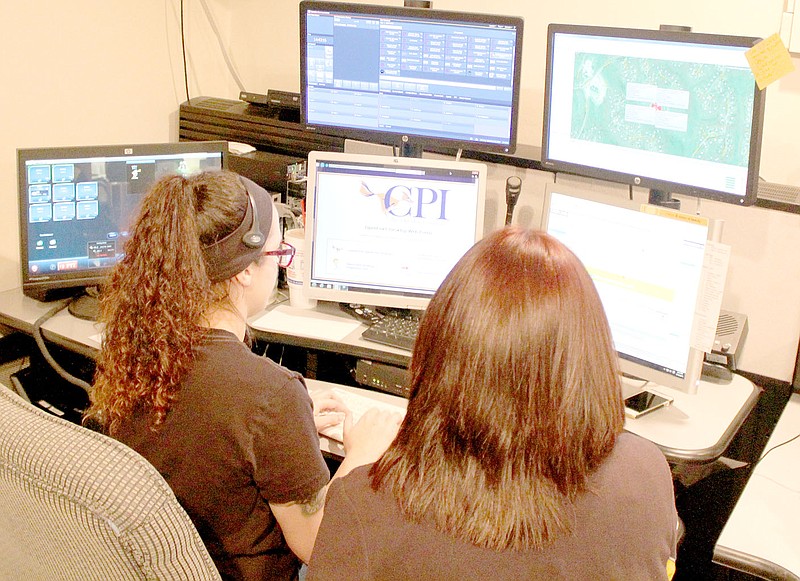A phone call can come at any time and interrupt what might have been a pleasant conversation in the Bella Vista Police Department's dispatch office -- and there's no telling what is going on on the other end of the line.
A recent social media movement, under the hashtag "Iam911," has built a nationwide discussion around the fact that emergency dispatchers are considered clerical workers rather than emergency workers.
"Our 911 dispatchers are as important as anyone else that works in emergency services," said Ken Farmer, Bella Vista's chief of police. "They have a thankless job, a stressful job, and I think they deserve to be recognized."
Because of the current classification of their work, dispatchers are not eligible for the same benefits and holidays as other emergency workers, despite being a part of the emergency services.
"People think we're glorified secretaries," said Diamond Neill, a dispatch trainee. "You're not training to wait tables or run a cash register. You're training to save lives, to keep people alive."
Alisha Larson is a dispatcher for the Bella Vista Police Department who is helping to train Neill.
She's been a dispatcher for eight-and-a-half years, she said, and all of those have been in Bella Vista.
Because Bella Vista is not the primary public safety answering point for 911 -- or PSAP -- 911 calls they receive first go through Benton County's emergency services and are then forwarded to Bella Vista if the emergency is there.
"I get the caller," Larson said, "and then they tell me what's going on and I have to very quickly decide what the problem is and who needs to help them."
Larson is responsible for deciding what agency responds -- be it the Fire Department, the Police Department or the Street Department -- and how many units should be sent. Once she's determined the course of action, she has to put the caller on hold and relay this to the proper people -- while making sure that caller knows she's coming back. All in about 90 seconds.
And it isn't over when she's gotten that information to the right service, particularly in the case of a medical call. She switches back to the caller and provides pre-arrival instructions for them, while trying to gather more info to help the emergency workers going to help them -- including the exact situation, the patient's age and gender and what's going on with them.
Until the emergency crews arrive, she said, she's moving back and forth, feeding information to the workers and guiding the caller through what they need to do -- in some cases even talking the caller through performing CPR.
"The emergency personnel show up on scene and you have to hang up and take the next one," she said. "You don't know what happens."
The job can become extremely frustrating, she said, because she isn't actually on the ground, and callers may not follow directions as well as they need to.
In one case, she said, a caller refused to perform CPR because he believed it was too hot to remove his wife from the air-conditioned car, and he thought that would pose a greater danger to her than a lack of blood flow.
Dispatch, Larson said, is like any other emergency service in that it becomes impossible for anyone to remain naive once they've dealt with some of the worst things going on in their community.
"You are not safe anymore," Neill added. "Your bubble pops."
Larson said she's also found herself more worried about her kids and less trusting of strangers.
It's a stressful career, Larson said, but the work is rewarding. While she does have to juggle enough information to necessitate half a dozen different screens connected to multiple computer systems while serving as a liaison between emergency personnel and the people who need their help and making consistently-correct decisions in a hurry and with little to no warning -- she can often go home knowing she's done something good.
In one case, she said, she helped a mother with her son's seizure, then heard the woman hyperventilating. She was able to calm the mother down and keep her from fainting -- which in turn meant that the EMS team only had one patient when they arrived.
"I really wish they would change the way we're labeled," she said. "We don't get the same benefits as police and fire. We don't get pensions or the same days off."
Eight years, Larson said, is a long time to work in dispatch -- many workers burn out after only a few years. But that's not something she has any intention of doing.
"This is my career," she said. "This is what I will do until I retire. I couldn't imagine doing anything else."
General News on 09/21/2016
